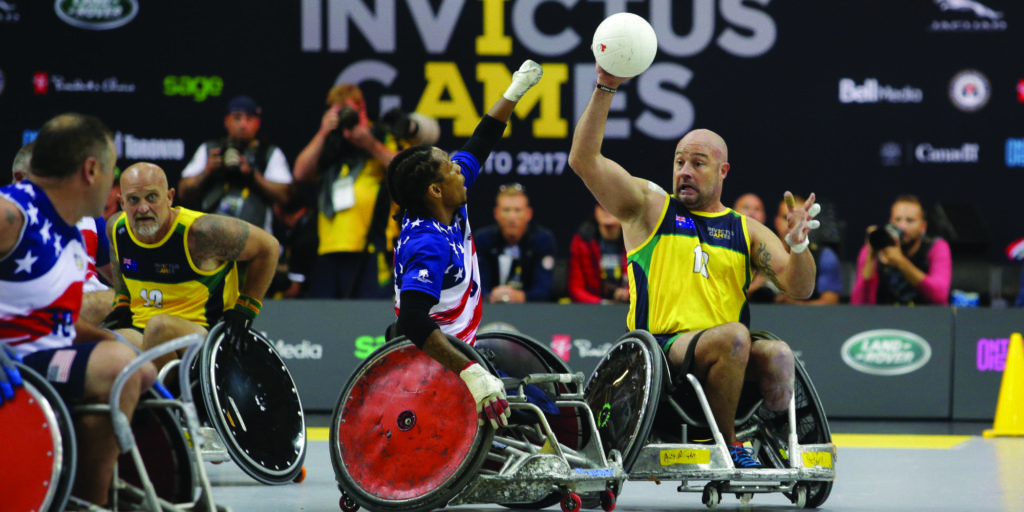The Prince & The Veterans Who’ve Made Their Own Olympics
Since 2014, those who have been injured, wounded or fallen ill at the forefront or behind the scenes of modern day warfare have been given a lifeline in the form of the Invictus Games. Latin for ‘unconquered’, the word Invictus itself stirs thoughts of strength and power and using the medium of sport, has delivered just that for those badly affected by recent global conflicts. In its fourth incarnation with the support of Jaguar Land Rover, the Invictus Games arrives in Sydney in late October continuing to give current and former servicemen and women the platform to rebuild their health and life purpose; something easily overlooked by the uninitiated.
Whilst only one of many people behind the Games, the recognisable face of the Invictus Games is undoubtedly the Duke of Sussex, better known as Prince Harry who has championed the adaptive sport cause after his own war time experiences. The Prince’s inspiration came as he officially opened the 2013 Warrior Games in the US, a niche sporting event that was organised by the US Department of Defense for injured American soldiers and servicemen and women. The Prince saw an opportunity to widen the net for servicemen and women of the same situation worldwide and got to work on the Invictus project; one which was easy for him to relate to. He was a genuinely passionate sports fan but foremost he was a dedicated military man. Despite his face being shone on every tabloid magazine from Pakistan to Pakuranga after his marriage to TV star Meghan Markle in recent times, it’s easy to forget the Prince was a soldier himself. Serving two tours in Afghanistan, Harry did more than complete the mandatory training and, over ten years, earned his way up to the rank of Captain. Being at the coalface and seeing war first hand, the Prince was well placed to understand the soldier’s lot then conversely, well placed in society as a Royal to make a meaningful difference. It was something dear to his heart.
It was easy for the Prince to find allies for his quest too and found commercial support from the outset with Jaguar Land Rover who have been omnipresent ever since, funding the operation. Reflecting on the vital relationship was Chairman of the Invictus Games Sydney 2018, Lieutenant General Peter Leahy. “Jaguar Land Rover are an integral part of the Invictus Games story and will play a vital role in helping the wider Australian community understand the true impact of service,” Leahy announced, and the true poignancy was in the exposure of the wounded to highlight their sacrifice in peacekeeping missions. Therefore, the inspiration for Harry, Jaguar Land Rover and those on the organising committee isn’t hard to recognise. Likewise, the importance of reintegrating wounded, ill or injured ex-servicemen into civilian life, something that the sponsors and the organisers alike were proud of. Since 2013, before the Invictus Games began, Jaguar Land Rover alone have employed over 700 ex-servicemen, truly putting their money where their mouth is.
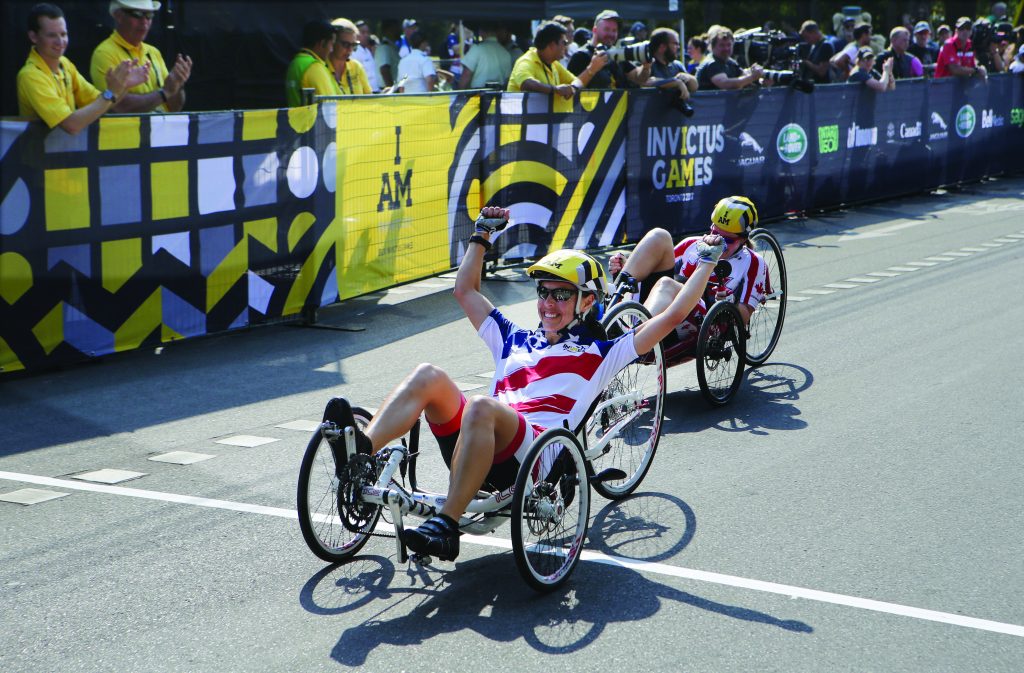
The Who, What Where Of The Invictus Games
In four short years, the Invictus profile has grown considerably from the initial 300 plus athletes in London to over 550 scheduled for Sydney. Naturally, the competing nations are familiar allied faces from recent conflicts but as the Games have grown as a repeatable and valued competition, new nations that have received an invite have jumped on, Poland the latest addition. Understandably, nations that are invited aren’t ‘rogue states’ or current war time adversaries but there’s no such grey area for the eligibility of the participants. According to the official Invictus Games website, eligibility consists of being an “active service person or veteran that has been wounded or injured as a direct result of your service.” No such distinctions or classifications like the official Paralympic Games are made underlying the more relaxed camaraderie and amateur aspect the Invictus Games engenders. It also perfectly serves Prince Harry’s original ideals for the Games as a means for injured servicemen and women to rediscover their identity and enjoyment through sport. Rest assured, competition is still hard fought.
18 nations are lining up then for competition in Sydney, many on and in the world renowned 2000 Olympics’ facilities – one of the pre-requisites for the host. “We had three key criteria,” Prince Harry announced when explaining how the organisers arrived at Sydney for the 2018 host. “First, it had to be an iconic city – somewhere known the world over. Second, it needed to be a city with a proud military heritage, which would welcome competitors from all over the world with open arms. And finally, we wanted to go somewhere where they are absolutely sports mad and would really get behind our competitors. It was an easy decision really – the 2018 Invictus Games are coming to Sydney.”
The decision to take the Games to Sydney between October 20th and 27th was also well received by presenting sponsor Jaguar Land Rover. “Jaguar Land Rover is incredibly proud to be the Presenting Partner of the Invictus Games Sydney 2018,” said Matthew Wiesner, Managing Director of Jaguar Land Rover Australia at the announcement. And, like the Prince he also saw the uniting qualities of friendly competition to make a difference. “Using the power of sport, we believe the Invictus Games can make a difference to rehabilitation of injured and wounded military personnel, and their individual and collective efforts should serve as an inspiration to everyone,” Wiesner continued.
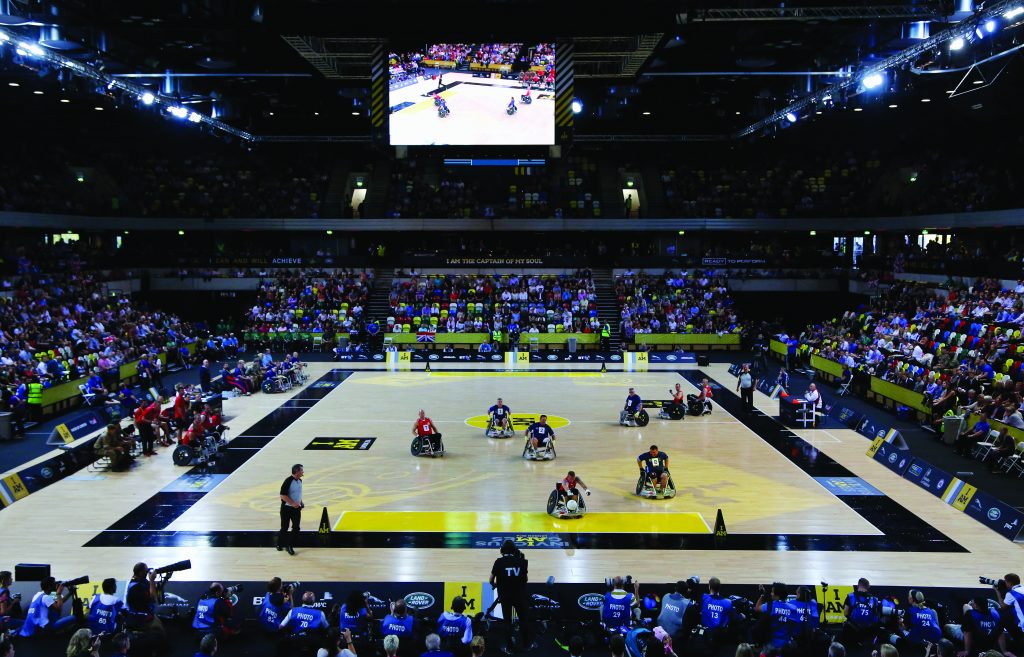
The Venues
As far as the action out in and around the stadiums goes, Sydney not surprisingly boasts world class facilities with appropriate history to boot. The swimming programme will take place in the same lanes as Ian Thorpe won three golds and two silvers, while the athletics will be based in new digs only a short distance away from the old track where Cathy Freeman famously won her 400m gold. The netball centre will play host to wheelchair events, whilst the greater city will host various sports including the Jaguar Land Rover Driving Challenge and sailing. The New South Wales Golf Club will also host a day out for those linked to the Games wanting a round on one of the world’s premier courses.
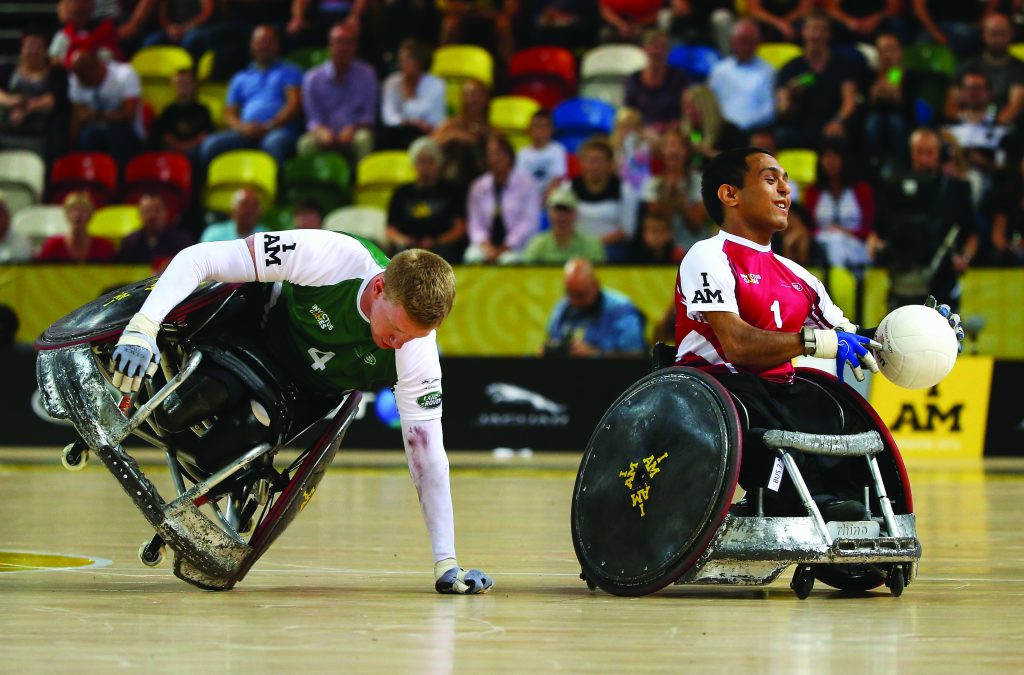
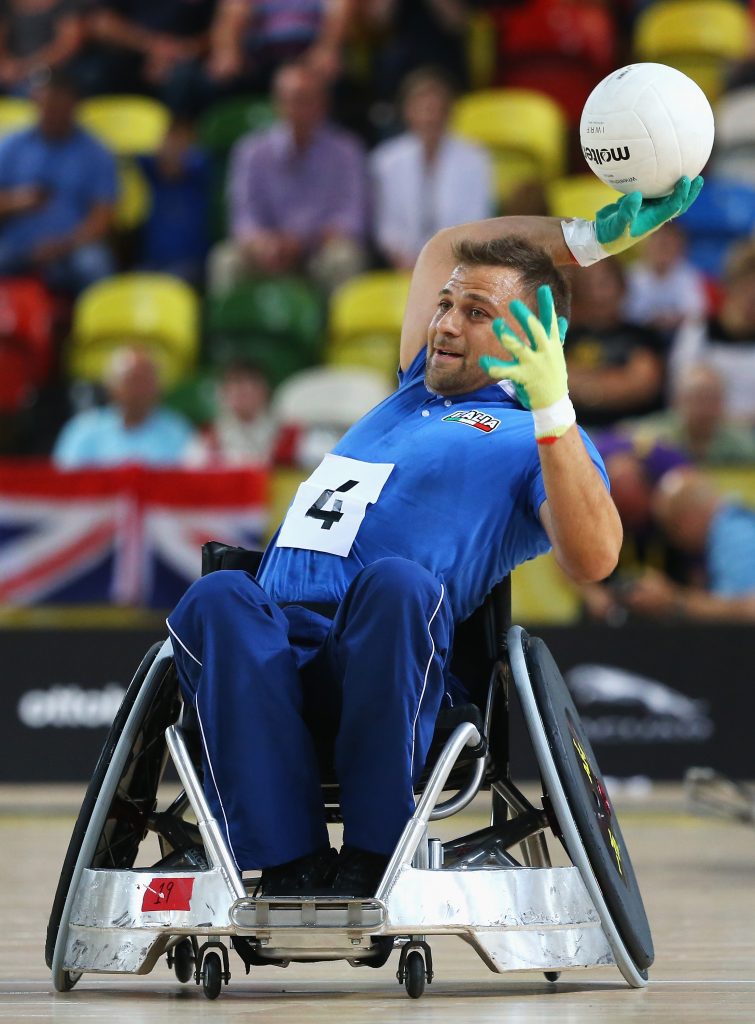
Thrown into the sporting schedule again is the Jaguar Land Rover Driving Challenge which could be the most difficult of them all; two competitors must work together as a team to negotiate a difficult off-road course in a sponsor’s vehicle. Pre-Games training consisted of handling a Land Rover with a bowl of water on the dash. New to the schedule is sailing which Kiwi athletes may fancy themselves winning in future Games but in the mean-time they need to dominate the wheelchair rugby. Roll Call: Wheelchair Basketball, Archery, Wheelchair Rugby, Indoor Rowing, Athletics, Driving Challenge, Powerlifting, Roadcycling, Sailing, Sitting Volleyball, Swimming.
The Team
The Kiwi team has grown each year the Invictus Games have been held and the trend will most likely continue. All of the gold medallists are returning in the 25-strong team which will be desperate to bring back a rugby gold. Roll Call: Jason Pore (co-captain), Kelly Whittle (co-captain), Vanessa BawdenPere, Jules Bramley, Daryl Burton, Bart Couprie, Nicki Fairbairn, Steve Fell, Nu Filo, Robert ‘Tiny’ Graham, Peter Harimate, Koro Hati, Stephen Limbrick, Megan Marshall, Ihaka Matairangi, Damien Nepata, George Nepata, Darren O’Callaghan, Ben Peckham, Grant Philip, Kiely Pepper, Gareth Pratt, Jason Sturley, Matt Vangioni and Craig Wilson
The “I Am Kiwi” Force
There from the inception has been the New Zealand contingent and there is little shock factor there with the tightknit history of the allied forces and the joint affinity for sports and competing. Doubly, New Zealand’s participation, infrastructure and success in the mainstream Paralympic movement naturally lent itself to current and former members of the defence forces getting involved. Sport’s a serious business on these shores and New Zealand was always going to punch above weight with sporting stars no matter the category.
When you think of dual sport representation in these parts, you instantly think of Jeff Wilson and his epic feats with the All Blacks and the Black Caps. Whilst rugby and cricket are the most natural seasonal fit, former Private Glen Barnes mixed up his 2017 Toronto Invictus Games schedule by winning an odd pair of silvers in the indoor rowing and wheelchair tennis; this after becoming New Zealand’s first Invictus gold medallist in Orlando 2016 on the rowing machine. Returning this year, Barnes will no doubt be amongst the medals again whichever way he diversifies.
Joining Barnes in the Kiwi ranks are a slow growing troupe of athletes that are realising the opportunity to represent their country again. It’s not just turn-up on the day either with selection camps beginning in March leading into the final picks at the training/ election camp in May. Further training camps followed in July and August of this year, showing that it’s far from an overseas junket with some recreation thrown in. The pedigree for New Zealand’s success at the Games is strong and with the country enjoying such a proud history in Paralympic pursuits, the two closely linked institutions ‘joined forces’ in June when the NZDF Invictus team took on the rest of the country’s wheelchair rugby teams at the nationals. Being Kiwis who haven’t won the Invictus gold in rugby might more than just rankle the competitive spirit.
Where the Kiwis have been successful in previous Games’ won’t be a surprise though with numerous indoor rowing medals coming in Toronto; Craig Wilson grabbing a golden double in the one and four-minute disciplines. A third gold was also won by Vanessa BawdenPere in the Midweight Powerlifting. And, the overall tally has steadily climbed since the inaugural appearance in 2014 from six to nine in 2016 to 11 last time out. Like the medal count, the athlete numbers have swelled too from an initial 12 athletes to 18 to 24 with only one new addition for Sydney. Leading the Kiwi team are actively serving, Sergeant Kelly Whittle and ex-SAS soldier, Jason Pore who captained the squad last year.
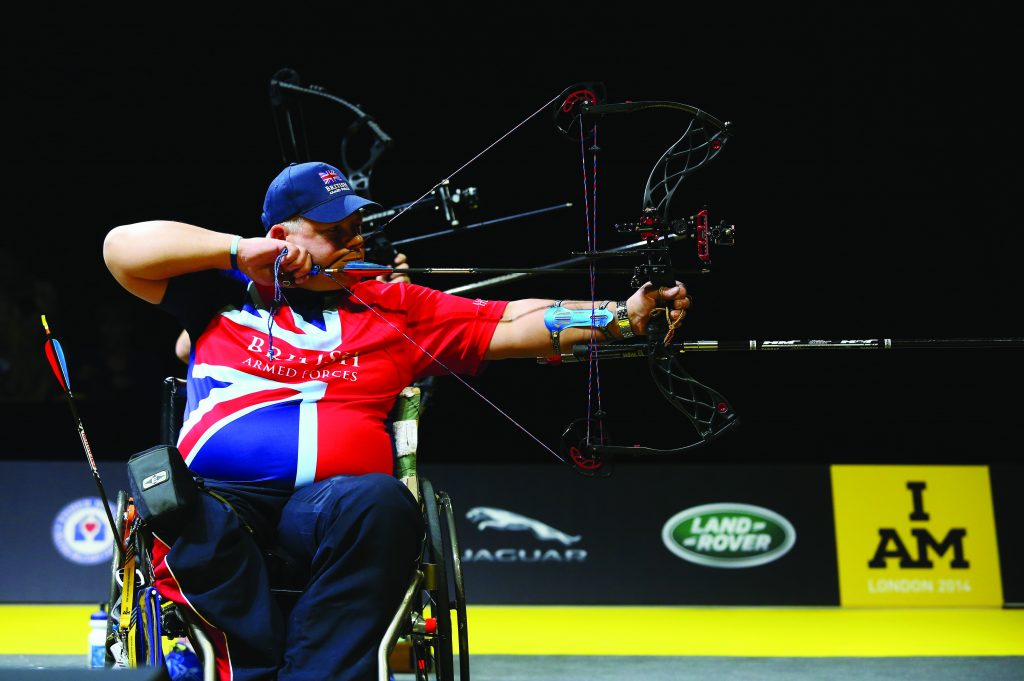
The Countries
Over 550 athletes will arrive in Sydney from over 18 different countries including the newest addition to the fold, Poland. All countries have played an active military role in recent times in either Afghanistan, Iraq, Bosnia or Kosovo to name a few. Roll Call: Afghanistan, Australia, Canada, Denmark, Estonia, France, Georgia, Germany, Iraq, Italy, Jordan, Netherlands, New Zealand, Poland, Romania, Ukraine, United Kingdom, USA.
The “I Am” Future
With growing athlete numbers, new countries and warranted increased profile, the Invictus movement is clearly on the up and for good reason. Going from strength to strength, the Games are breaking through the ceiling as the positive results are broadcast back to eligible parties and more countries and their athletes are invited. “Time and time again, competitors from around the world tell me that sport has saved them; that the Invictus Games have given them a new lease on life; and that to represent their country again with fellow comrades is something they could only have dreamt of while lying in hospital,” Prince Harry said in the build up to the Sydney Games, outlining the main function and goal of the project. Such is the success of the Games, 2020 at The Hague is already sewn up.
NZ’s Invictus Experience
2014 – London: 6 medals (three silver, three bronze) 12 athletes
2016 – Orlando: 9 medals (one gold, four silver,four bronze) 18 athletes
2017 – Toronto: 11 medals (three gold, four silver and four bronze) 24 athletes
2018 – Sydney: 25 athletes

